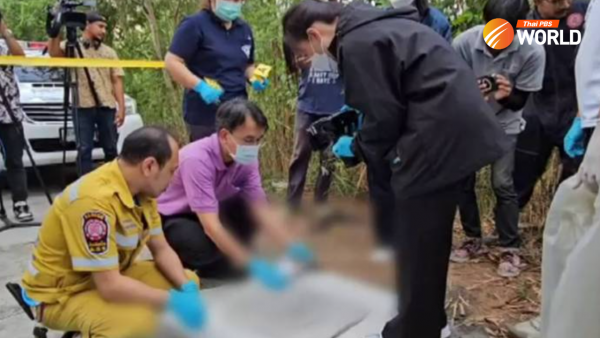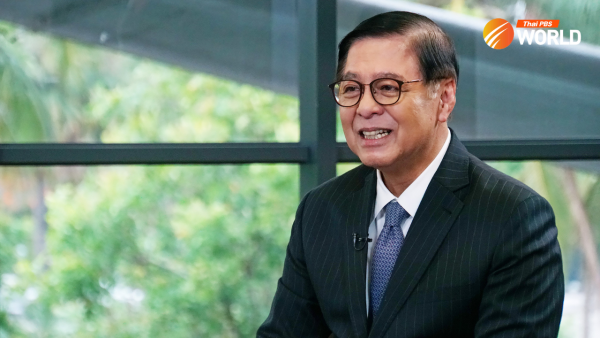Thai Govt facing backlash as third wave of COVID threatens to engulf Thailand

COVID-19 has been around for more than a year already in Thailand. Since it began spreading in early 2020, experts have been warning about more dangerous waves of infection to come. Yet, when the third wave finally hit this month, the government was seemingly caught ill-prepared.
“We are not that confident. But we are doing our best,” Deputy Public Health Minister Dr Sathit Pitutecha admitted on Sunday (April 11) when asked whether the COVID-19 situation could be controlled. His boss, Public Health Minister Anutin Charnvirakul, is now in isolation after attending an April 6 event alongside Transport Minister Saksayam Chidchob, who then tested positive.
During the past week, the number of new cases has risen by hundreds every day – 194 on April 5, 250 on April 6, 334 on April 7, 405 on April 8, 559 on April 9, 789 on April 10, and 967 on April 11. As of press time, more than 4,300 people are being treated for COVID-19 in hospital.
The public is now worried that COVID-19 transmissions – which had been reined in for most of 2020 – will soon spiral out of control. Not surprisingly, medical facilities have experienced a surge in demand for COVID tests and treatment.
Thailand sees a run on hospitals as Covid-19 cases linked to entertainment venues are reported
People who visited seven bars and pubs in Bangkok in March have been told to urgently seek coronavirus tests after a new cluster of infections was identified. As a result, all coronavirus test outlets at both public and private hospitals have seen an influx of people worried that they too might have contracted the virus.
COVID patients turned away, tests delayed
In the early hours of Sunday morning, four hospitals reportedly refused treatment to a couple who turned up with their 10-month-old baby and said they had caught COVID-19.
All four hospitals, according to the mother, said they did not have any more beds available for coronavirus patients. After the couple were turned away by the fourth hospital, the mother broke down in tears and went live on social media to reveal her heart-breaking situation. Later in the day, Bhumibol Adulyadej Hospital admitted the baby but refused to provide further details about treatment of the family.
Thailand’s COVID-19 control policy stipulates that people who test positive for the virus must be treated at medical facilities. The policy aims to prevent the serious outbreaks seen in countries where coronavirus patients without serious symptoms are advised to self-isolate at home.
Several private hospitals, including Sukhumvit Hospital and Chao Phya Hospital in Bangkok, have also suspended their COVID-19 testing facilities citing limited resources. Meanwhile, others have said it will take longer than usual for the test results to come back. In controlling a highly-contagious disease, the faster the detection the better. So, the delays underline a big problem.

COVID-19 budget delay
The Rural Doctor Society (RDS) complains that the government has been slow to hand over the Bt5-billion budget for procurement of medical equipment to curb the spread of COVID-19. The Cabinet approved a Bt5.8-billion budget on January 12, but so far only a small portion has been disbursed.
“We do not understand why it’s taking so long for the budget to arrive. We need to buy medical supplies, build negative-pressure rooms, procure ambulances, ventilators, and vital-sign monitors,” the RDS said on its Facebook page recently.
Warning of a looming medical calamity, it urged the government to speed up budget disbursement.
Vaccination questions linger
Although the private sector has been eager to procure COVID-19 vaccines for Thais, the government did not give a clear nod until April 9. Late last month, the Health Service Support Department was still warning private hospitals against accepting COVID-19 vaccine reservations from people.
Health authorities insisted that since the vaccines were only approved for emergency use, private hospitals could not import and administer them. The government has long insisted its vaccination plan is sufficient to control the COVID-19 situation.
However, as of Sunday, only 485,987 people – less than 1 per cent of the Thai population – have had the jab. To achieve herd immunity, around 70 per cent of the population must have COVID-19 antibodies.
Prime Minister General Prayut Chan-o-cha responded to the third wave of infections by vowing to remove obstacles to vaccine imports.
“We are glad that the private sector wants to help on this front. We are going to provide vaccination alternatives,” said the PM.
Ad hoc panel to procure vaccines with private sector participation
Thailand’s former public health minister has been appointed head of an ad hoc panel to procure alternative brands of COVID-19 vaccines for the Thai people, besides AstraZeneca and Sinovac, after the CCSA has agreed to allow the private sector to participate in the procurement of an additional 10 million doses.
Solutions from the govt
Dr Supakit Sirilak, director-general of the Medical Sciences Department, said his agency is ready to step in if any hospital runs short of COVID-19 tests. Meanwhile, health authorities are preparing a central bed-management system to deal with lack of capacity at individual hospitals.
Sathit explained that the system will show how many beds for coronavirus patients are still available and where. Meanwhile, field hospitals will also be set up to deal with the rising number of COVID-19 patients.
Thammasat University Hospital is reopening its field hospital of 470 beds to accommodate COVID-19 patients transferred by other medical facilities. The Defence Ministry has also said that military bases in Bangkok and nearby provinces will prepare field hospitals with the combined capacity for 3,195 patients.
The Bangkok Metropolitan Administration is also gearing up two hospitals, Bang Khun Thian Geratric Hospital and Ratchaphiphat Hospital, as facilities to treat COVID-19 patients.
“In addition, we will prepare hospitels (hotels repurposed as medical facilities) for people who need to be monitored for 14 days but show no symptoms,” Sathit said.
Meanwhile, Medical Services Department director-general Somsak Akksilp said private hospitals that had run out of beds should refer COVID patients to other hospitals in their network.
Expert warns of high chance of wider COVID-19 outbreak during Songkran
Thailand’s new COVID-19 infections are expected to increase rapidly during the two weeks following the Songkran holidays, especially now that the UK strain of the virus is spreading, according to Dr. Prasit Watanapha, Dean of the Faculty of Medicine at Siriraj Hospital.
Advice unheeded?
Among those who say the government has done too little to combat the pandemic is Dr Thira Woratanarat, a public health expert who teaches at Chulalongkorn University’s Faculty of Medicine.
“COVID-19 is now spreading,” he said via Facebook on Sunday.
The medical lecturer is a stern critic of the government’s COVID-19 policies, disagreeing with several points of its strategy. For example, he thought it was a bad idea to refrain from enforcing strict control measures like lockdowns when the second wave emerged late last year.
In early January, he warned that the country would see the effects of a more relaxed policy in either the middle of January or late March. The third wave of COVID-19 duly emerged in the last week of March.
By Thai PBS World’s General Desk
Third wave of COVID infections spins new economic risks
Thailand’s new wave of COVID-19 infections has raised the economic risk level, but a clear picture of the impact will only emerge after the Songkran break. The Thai economy contracted 6.1 per cent amid the first wave last year, and following the second wave in December and third wave just last week, many people are worried that Thailand’s recovery will be further delayed.






